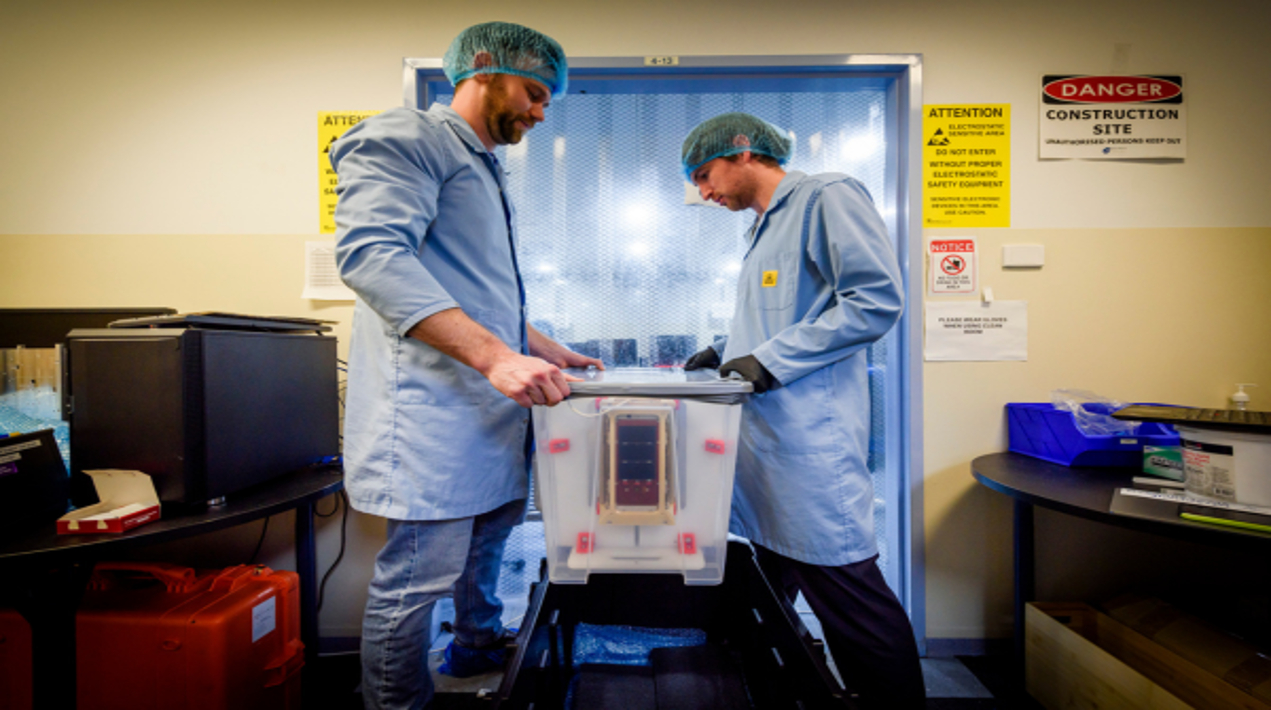
|
Getting your Trinity Audio player ready...
|
Australia’s growing sovereign satellite design and construction capability is a critical element of the nation’s expanding space industry. It serves as a cornerstone for advancing economic growth, enhancing environmental management, and strengthening defence and national security efforts.
Two missions, the South Australian Space Services Mission satellite Kanyini and the University of Melbourne’s SpIRIT (Space Industry – Responsive – Intelligent – Thermal) satellite, are pivotal in building the skilled workforce and expertise necessary to support the increasingly complex space missions being introduced in Australia. However, venturing into space is notoriously challenging, especially for small teams striving to accumulate experience and capabilities in the field.
Operating in the space environment presents numerous challenges, and one of the most formidable is dealing with extreme temperature variations. Complex modelling and validation are required to ensure that a spacecraft’s design can withstand the temperature extremes it will encounter in various orbital scenarios. The objective is to prevent critical systems from getting too hot or too cold, as this could lead to malfunctions or mission failure.
In this context, the SpIRIT team played a crucial role in supporting the thermal modelling and analysis of the Kanyini flight configuration. This collaborative effort brought together members from the University of Melbourne’s SpIRIT team and the Kanyini team, which comprised of a variety of contributors including experts from SmartSat CRC and the Australian Space Agency.
The SpIRIT satellite, after completing its initial development phases, recently moved to Australia’s National Space Test Facility. This state-of-the-art facility is located on the Australian National University campus in Canberra and is designed to simulate the conditions of space.
Here, the SpIRIT satellite underwent thermal vacuum and vibration testing. Thermal vacuum testing assesses how the satellite performs in a vacuum chamber with temperatures mirroring those of space, while vibration testing evaluates how well it withstands the mechanical stresses experienced during launch and orbital operations.
In the realm of space technology, adherence to schedules and timelines is paramount. Launch dates are typically set in stone, and access to test facilities is limited, leaving little room for flexibility. Missing these milestones can result in significant cost overruns and scheduling disruptions. Therefore, the collaboration was crucial in ensuring that the project stayed on track.
Australia’s space industry is steadily advancing in satellite design and construction, with missions like Kanyini and SpIRIT playing a pivotal role. These missions are not only instrumental in enhancing the nation’s space capabilities but also serve as vital training grounds for the next generation of space professionals.
However, the technical challenges in space technology, particularly concerning thermal management, are substantial. Collaborative efforts and rigorous testing, like the thermal vacuum and vibration tests conducted in Canberra, are essential for overcoming these challenges and ensuring the success of Australian satellite missions in the unforgiving space environment.
OpenGov Asia reported earlier that in NSW, an innovator in artificial intelligence (AI) for robotic and navigation technologies has unveiled a cutting-edge AI robotics facility for autonomous systems situated at UTS Tech Lab. Located in Botany, New South Wales (NSW), this facility is designed to expand the production of the company’s groundbreaking navigation systems for GPS-denied environments, including its digital fibre-optic gyroscope (DFOG) technology.
This state-of-the-art robotics facility for autonomous systems signifies a significant transformation in sovereign manufacturing, driven by advanced technologies such as AI, automation, and precision engineering. In the realm of autonomous systems, precision and reliability are paramount, and the facility, following a vertical integration model, is equipped with machinery and processes for automated manufacturing supported by machine learning. This guarantees the consistent production of reliable, resilient, and high-quality navigation systems.
















